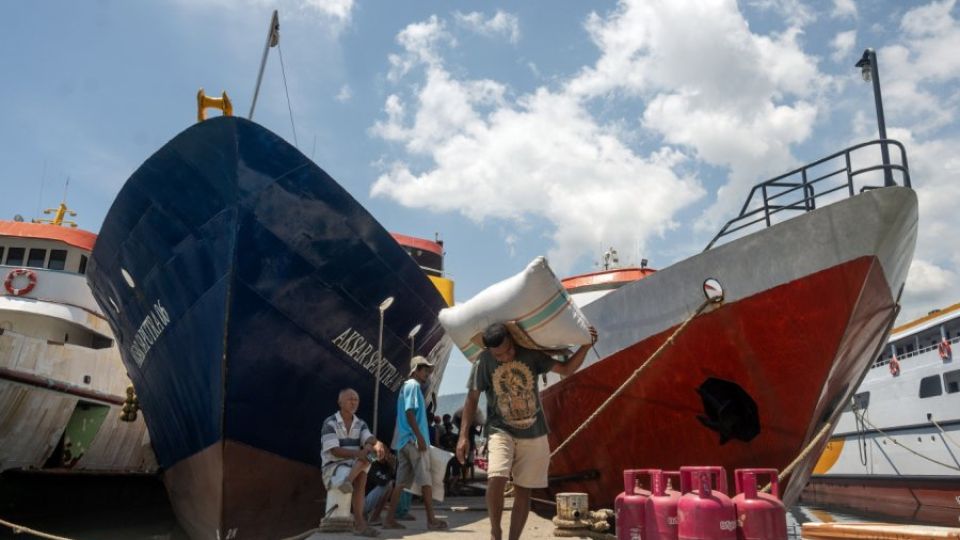November 11, 2024
JAKARTA – Indonesian businesses are concerned that restrictive trade policies from United States president-elect Donald Trump will incentivize Chinese producers to divert large quantities of goods to Southeast Asian markets and create barriers for Indonesian exports to the US.
Indonesian Employers Association (Apindo) chairwoman Shinta Kamdani told The Jakarta Post on Friday that Trump’s “strong protectionist policies” and his “America-first” approach could limit Indonesian exporters’ access to the US market.
Moreover, if Chinese producers faced similar barriers to the US market, they could reroute their goods to Southeast Asia, including to Indonesia, which would increase competition with domestic producers, she said.
Shinta added that economic pressures on China, including its trade war with the US, could reduce Chinese demand for Indonesian goods as well.
Trump, who won the US presidential election on Tuesday, has threatened 60 percent tariffs on imports from China. The figure is much higher than the rate of between 7.5 and 25 percent he imposed during his first term as president, from 2017 to 2021.
China is Indonesia’s largest trading partner in terms of both exports, worth some US$64.94 billion in 2023, and imports, worth $62.88 billion in the same year, according to Statistics Indonesia data.
The US, meanwhile, is the second-largest export market for Indonesian goods, buying $23.25 billion worth in 2023. It is also the fourth-largest source of imports to Indonesia, sending some $23.25 billion worth of goods in 2023.
But Shinta said Trump’s presidency would not be all bad news for Indonesia, as it might emerge as China’s alternative to the US.
Several companies have moved factories out of China to Southeast Asia in expectation of Trump’s tariff regime.
“Trump’s approach is more transactional. For example, during Trump’s first term, there was talk about a limited trade deal that enabled Indonesia’s main export products, such as garments, to get easy market access in the US if they were using US cotton,” said Shinta.
Shinta added that Jakarta would have to take some action to minimize the negative impact of the change of US administration, including pushing for trade deals, diversifying export markets and improving competitiveness.
“Reducing export dependence on US and Chinese markets has become important,” Shinta said, adding that the country should strive to increase its competitiveness through innovation to survive amid global competition and trade restrictions.
Shinta contended that more regional trade agreements were necessary to navigate the expected wave of protectionism, as such deals would cement “a strong foundation for Indonesian businesses to brace for the shift of US policies”.
Investment and Downstream Minister Rosan Roeslani said on Thursday that Trump’s protectionist policy would have an impact on Indonesia but that the government would keep an eye on policies Trump introduced after his inauguration on Jan. 20, 2024, as reported by detik.com.
However, Rosan, who previously served as Indonesian ambassador to US, believed Trump’s presidency would not lead to a significant decline in US investment in Indonesia, noting that figures had remained stable over the past decade, including during Trump’s first term as president.
He also expected that renewable energy investment in Indonesia would remain strong, including from the US, noting that such funding had become a global norm.Indonesian Young Entrepreneurs Association (HIPMI) secretary general Anggawira urged the government on Wednesday to expedite regulatory reform to ensure Indonesia remained attractive for foreign investment amid global economic uncertainties, especially during Trump’s upcoming presidency, bisnis.com reported.
Finance Minister Sri Mulyani Indrawati told reporters on Friday that Trump’s policies could lead to a decline in global manufacturing activity and a rise in fiscal pressure in many countries.
She added that the Trump administration’s policy on the energy transition would be somewhat opposite to that of the incumbent, President Joe Biden. In the past, Trump advocated for an increase in oil production to bring down global prices.


